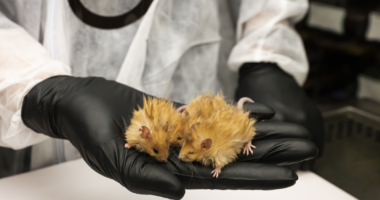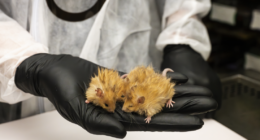Table of Contents Show
The world of medicine is no stranger to debates, but few topics have stirred as much public interest and controversy as the potential uses of Ivermectin. Recently, the discussion took center stage when Mel Gibson appeared on Joe Rogan’s podcast, sharing his personal story about Ivermectin’s alleged role in treating stage four cancer. This claim has sparked a whirlwind of conversations, questions, and critiques within the medical community and beyond.
But what exactly is Ivermectin, and does it have any scientific grounding as a treatment for cancer? This blog aims to unpack the debate, explore the science, and provide insights from medical experts and real-life experiences to better understand Ivermectin’s potential role in oncology.
What is Ivermectin?
Ivermectin is a medication initially developed in the 1970s to treat parasitic infections in livestock and, later, humans. It gained worldwide recognition for combating diseases like river blindness (onchocerciasis) and lymphatic filariasis, earning the scientists behind it a Nobel Prize in 2015. Its affordability and efficacy have made it a valuable tool in global health.
However, Ivermectin has also become a focal point of controversy, particularly due to its unproven use in treating COVID-19. Misinformation has flooded social media, often overshadowing legitimate scientific discussions about the drug’s other potential applications.
Ivermectin’s Potential for Cancer Treatment
How Can Ivermectin Work Against Cancer?
While Ivermectin was not initially designed as an anti-cancer drug, some early research suggests it may hold promise in oncology. Scientists have studied its effects on cancer cells, primarily focusing on its ability to:
- Disrupt cancer cell metabolism: Ivermectin appears to inhibit certain pathways critical to cancer cell survival, potentially slowing growth and spread.
- Enhance immune response: By modulating the immune system, Ivermectin might improve the body’s ability to target cancer cells.
- Reduce resistance to chemotherapy: Some studies suggest Ivermectin can sensitize cancer cells to standard chemotherapy drugs, improving their efficacy.
Scientific Studies on Ivermectin and Cancer
Several studies and trials have emerged exploring Ivermectin’s potential role in cancer treatment:
- University of Tokyo Study:
Research demonstrated that Ivermectin could inhibit cancer cell growth and metastasis in breast cancer models (in vitro and in vivo).
- University of Florida Clinical Trial:
Glioblastoma patients treated with Ivermectin showed increased survival rates and reduced tumor volumes in certain cases.
- 68-Year-Old Stage 4 Lung Cancer Case Study:
A patient undergoing chemotherapy saw significant tumor shrinkage and improved quality of life after adding Ivermectin to their treatment regimen.
- McMaster University Retrospective Study:
Colorectal cancer patients who included Ivermectin in their treatment had longer progression-free survival compared to those who did not.
These studies, while promising, remain preliminary. Larger, rigorously controlled trials are necessary to validate these findings and make Ivermectin a mainstream treatment option.
Mel Gibson’s Experience with Ivermectin
The topic gained broader attention when Mel Gibson opened up on “The Joe Rogan Experience” about his personal health battle involving Ivermectin. According to Gibson, the medication played a pivotal role in his fight against stage four cancer, which he claims to have overcome.
While Gibson’s story offers a compelling anecdote, it’s essential to treat it as just that—a personal experience rather than verified medical evidence. Celebrity endorsements, even unintentional ones, can sometimes blur the lines between legitimate science and anecdotal accounts. It’s crucial for such claims to be backed by peer-reviewed research before influencing treatment decisions.
The Medical Community’s Stance
Leading oncologists and pharmacologists are cautiously optimistic but stress the importance of evidence-based medicine. Here’s what some experts have to say:
- Dr. Elena Ramirez, Oncologist:
While initial studies on ivermectin and cancer are intriguing, we are not yet ready to recommend it as a standard treatment. Rigorous clinical trials are essential to determine its efficacy and safety.
- Dr. Michael Grant, Pharmacologist:
Ivermectin’s mechanism of disrupting cellular processes aligns with what we see in cancer therapies. However, more data is needed before integrating it into oncological practices.
Medical professionals unanimously agree that cancer patients should not self-prescribe Ivermectin or replace standard treatments with it. Consulting healthcare providers remains paramount.
Patient Perspectives and Experiences
Ivermectin has undoubtedly sparked curiosity among cancer patients, particularly those with limited treatment options. While some have shared stories of hope after incorporating Ivermectin into their care plans, others have seen no noticeable effects. These mixed results underscore the importance of personalized treatment plans and professional guidance.
A Story of Hope
Karen, a 56-year-old breast cancer patient, shared her experience after adding Ivermectin to her treatment regimen.
“After hearing about a clinical trial, I discussed it with my doctor and was cautiously optimistic. While my cancer hasn’t disappeared, my quality of life has improved, and my tumor has stabilized. This isn’t a cure, but it’s given me more time.”
Such stories offer hope but also serve as a reminder that Ivermectin’s role in cancer treatment remains unproven and experimental.
Legal and Ethical Considerations
The use of Ivermectin for cancer treatment presents significant regulatory and ethical challenges. The drug is primarily approved for parasitic infections, and its off-label use without sufficient evidence risks patient safety.
Ethically, prescribing Ivermectin as a cancer treatment raises questions about informed consent and the exploitation of vulnerable patients. For the medical community, balancing innovation with patient safety is a delicate act.
What’s Next for Ivermectin and Cancer?
The debate around Ivermectin highlights the broader challenge of evaluating alternative treatments in medicine. While the research so far shows potential, we are far from conclusive answers. Ongoing clinical trials and studies will be crucial in determining whether Ivermectin can join the arsenal of cancer-fighting therapies.
For now, cancer patients and their loved ones should prioritize open discussions with their healthcare providers. Scientific progress is built on cautious optimism, collaboration, and rigorous testing.
What’s your take on Ivermectin’s potential role in cancer treatment? Have you or a loved one had any experience with this medication? Share your thoughts in the comments below. And remember, always consult medical professionals before making treatment decisions.
Frequently Asked Questions (FAQs)
Ivermectin is a medication traditionally used to treat parasitic infections in humans and animals, such as river blindness and intestinal strongyloidiasis. It has also been used to address head lice and scabies.
Recent studies in laboratories have suggested that Ivermectin might have anti-cancer properties, such as inhibiting tumor growth or affecting cancer cell signaling pathways. However, research is still in its early stages, and more clinical trials are needed to establish its effectiveness.
No, Ivermectin is not currently approved for cancer treatment. Its use in this context is experimental and under investigation through controlled scientific studies.
Yes, taking Ivermectin without medical supervision can be dangerous. Using the medication outside its approved purposes can lead to side effects such as dizziness, nausea, or more serious complications, depending on dosage and individual health factors.
If you are curious about the potential of Ivermectin in cancer treatment, consult your healthcare provider for reliable information. They can provide guidance based on the latest research and your personal health situation.









